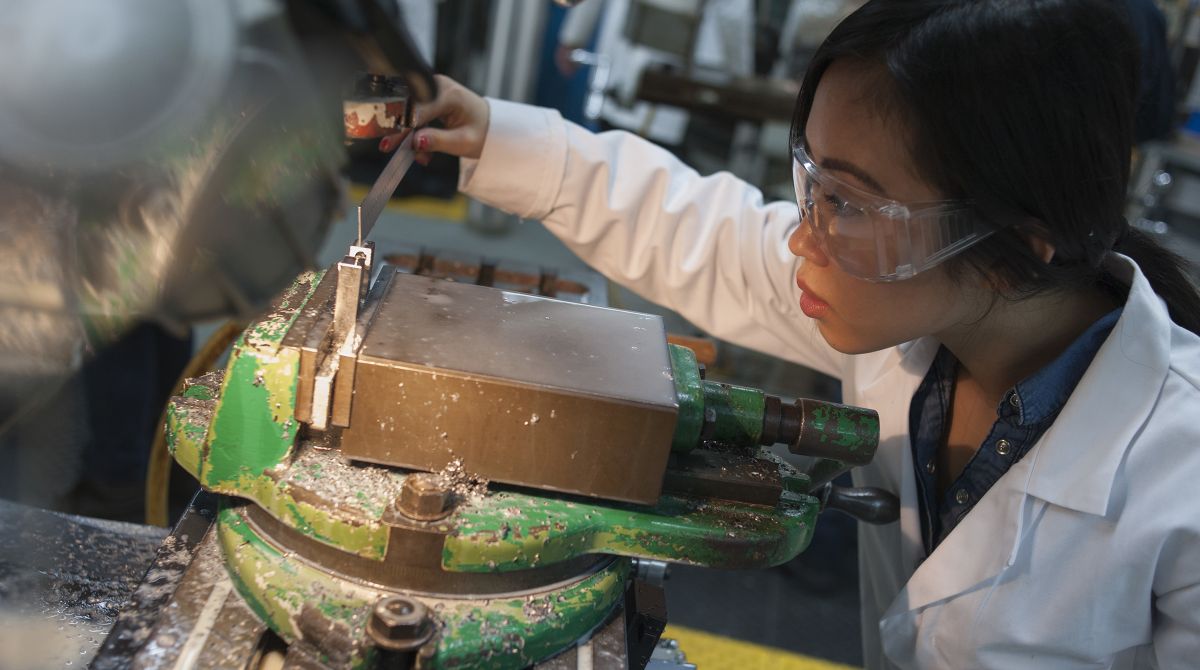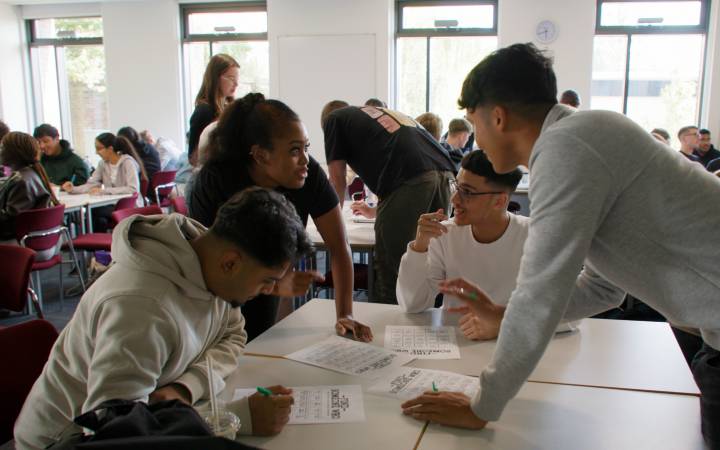Kingston University's School of Engineering and the Environment receives Athena SWAN bronze award from Advance HE
Posted Friday 11 October 2019
 The School of Engineering and the Environment has been awarded an Athena SWAN bronze award by Advance HE.
The School of Engineering and the Environment has been awarded an Athena SWAN bronze award by Advance HE.
Kingston University's School of Engineering and the Environment has become the third department to receive an Athena SWAN bronze award for its commitment to gender equality and inclusivity.
This latest accreditation from Advance HE - formerly the Equality Challenge Unit (ECU) - means all three Schools in the Faculty of Science, Engineering and Computing now hold department awards, following recognition for the School of Computer Science and Mathematics as well as the School of Life Sciences, Pharmacy and Chemistry by the Government-funded organisation.
Advance HE aims to promote diversity and improve the experience of all those working and learning in institutions in the United Kingdom, with Kingston University also holding an institution-wide bronze award which it received in 2017. Department awards recognise that in addition to institution-wide policies, specific work is being carried out within a School to promote gender equality and to identify and address challenges particular to the department and discipline.
"We're delighted that our commitment to advancing the careers of women in science, technology, engineering and maths (STEM) at all levels across the Faculty has now seen all of our Schools recognised with a bronze award," said Dr Lucy Jones, Vice Dean of the Faculty of Science, Engineering and Computing and the University's gender equality champion and lead on Athena SWAN submissions. "This is a strong foundation for the Faculty to now work towards achieving silver awards in every department and to help support the institution to gain more department awards and facilitate the university's commitment to achieve an institutional silver award.
"Work is well underway in some of our other Faculties to submit applications for bronze department awards and I would like to thank all staff involved in the work for their time and engagement in achieving this recognition."
The Athena SWAN Charter was established in 2005 to encourage and recognise activities aimed at advancing the academic careers of women in science, technology, engineering, maths and medicine in higher education and research. In 2015 it was expanded to include the arts, humanities, social sciences, business and law, and now covers professional and support roles within higher education as well as trans staff and students.
Contact us
General enquiries:
Journalists only:
- Communications team
Tel: +44 (0)20 8417 3034
Email us



